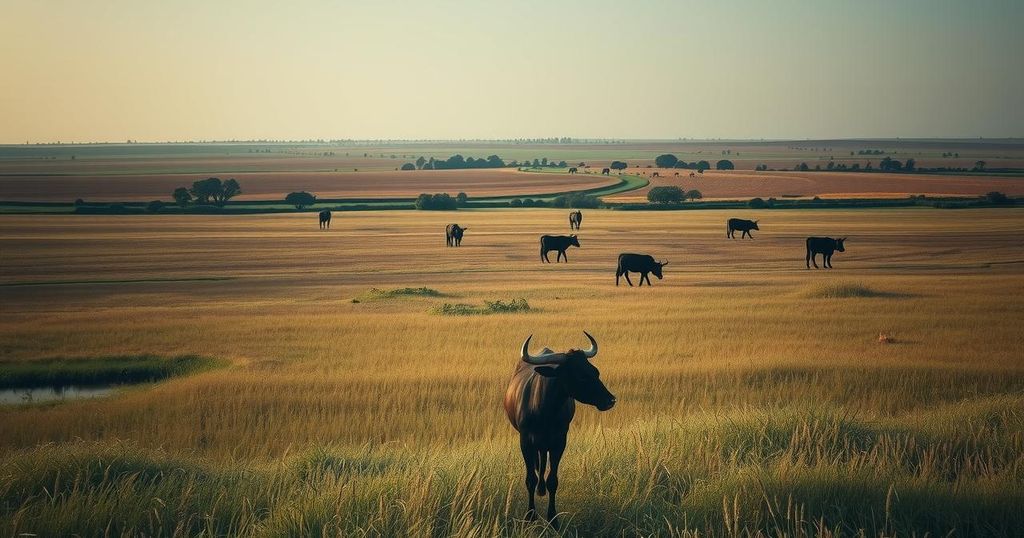Unidentified assailants attacked cattle camps in South Sudan last week, claiming 35 lives and injuring 46 others, while also stealing 11,000 head of cattle. This type of cattle raiding is linked to competition over scarce resources and has historically triggered conflict between ethnic groups, despite a period of absolute civil war between 2013 and 2018.
In a tragic incident in South Sudan last week, unidentified attackers targeted cattle camps in a southeastern region, resulting in the deaths of at least 35 individuals and injuries to 46 others, as reported by community leader Mayom Ateny. The assaults occurred on January 31, specifically affecting the Dinka Bor cattle camps, where 11,000 head of cattle were also stolen. Cattle raiding is a contentious issue in South Sudan, often escalating violence among different ethnic groups as they compete for limited resources.
Commissioner Olum Pole Pole Ataruk and Eastern Equatoria state’s Information Minister, Elia John Ahaji, did not respond to inquiries regarding the attacks. Cattle are not only a source of wealth in South Sudan but also serve significant cultural roles, such as being given as bride price. The ongoing conflict has roots in the legacy of a civil war that claimed hundreds of thousands of lives from 2013 to 2018, leaving the region fraught with violence despite a fragile peace among major rival factions.
Nicholas Haysom, head of the United Nations Mission in South Sudan (UNMISS), conveyed serious concerns about the rise in violence between pastoralists and farming communities in Eastern Equatoria. In his statement, he condemned the attacks and called for all involved parties to exercise restraint and to halt the cycle of aggression. This attack serves as a grim reminder of the ongoing volatility within South Sudan, emphasizing the urgent need for strategies to mitigate such conflicts.
South Sudan has experienced prolonged instability, with cattle raiding being a major catalyst for conflict among different ethnic groups. The nation has been armed with weapons due to years of war, significantly contributing to violence over resource competition. Prior to the brief peace, a civil war resulted in massive casualties, and even with a cessation of direct conflict among primary factions, clashes among armed groups continue to threaten the safety of communities, particularly those reliant on cattle as a measure of wealth and social standing.
The attack on the cattle camps in South Sudan highlights the critical issues of resource competition and ethnic tensions in the region, leading to tragic loss of life and the theft of cattle. The ongoing cycle of violence underscores the importance of peace-building measures and community cooperation to prevent further bloodshed. As articulated by Nicholas Haysom, establishing restraint is essential to curbing the violent disputes that plague pastoral and agricultural communities.
Original Source: www.newarab.com




